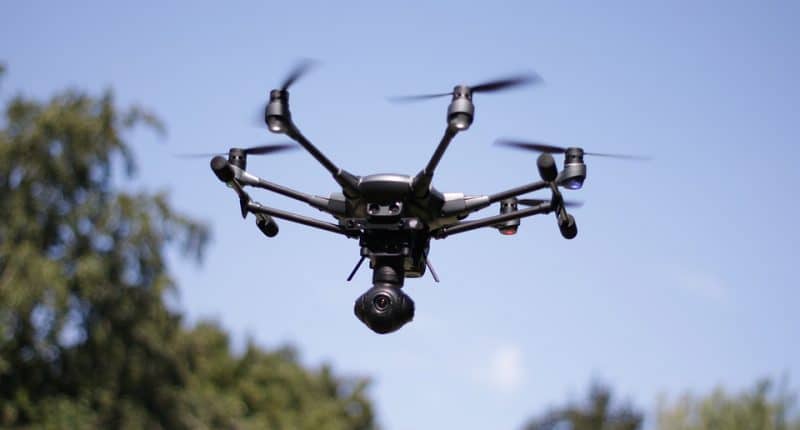At a time when drone usage in India has skyrocketed, and the technology is being used for a wide range of tasks from tackling locust attacks to using it for surveillance purposes, the need for robust guidelines has emerged as a new area of focus for the country. This is why the government has announced the Unmanned Aircraft System Rules, 2021, laying down the terms of the usage of drones by individuals and businesses, as well as terms of research, testing, production and import of these vehicles.
The rules set up a regulatory framework aimed at encouraging the use of drones for commercial and security purposes, while making sure that there are sensible limitations to the use of the technology.
The guidelines state that drones are prohibited from operating within five kilometers of international airports Mumbai, Delhi, Chennai, Kolkata, Bengaluru, and Hyderabad, and at a distance of three kilometers from the perimeter of any civil, private, or defense airport. Additionally, drones that weigh more than 250 grams can only be flown by a remote pilot with permission from the Directorate General of Civil Aviation (DGCA) for every flight.
Moreover companies like Amazon, Flipkart, Zomato and Swiggy might have to wait some more before they can use drones for deliveries, as the guidelines state that drones cannot be used for delivering goods.
Drones are also divided into five categories, based on their weight — nano unmanned aircraft, micro unmanned aircraft, small unmanned aircraft, medium unmanned aircraft, and large unmanned aircraft.
Further guidelines prohibit the flying of drones within a distance of 25 km from international borders which include Line of Control, Line of Actual Control, and Actual Ground Position Line. Additionally, drones cannot be flown around military installations, or where military activities take place are also prohibited, unless clearance is obtained from the local military facility.
If you want to use a drone, you will be required to obtain approval from the Directorate General of Civil Aviation (DGCA) to import, manufacture, trade, own or operate drones. An Indian citizen above 18 years of age with the DGCA’s approval will be able to import, manufacture, trade, own, or operate drones. In the case of a company, it must be registered and have its principal place of business in India, and the chairperson and at least two-thirds of its directors must be citizens of India. No drone can be operated without a valid certificate of manufacture and airworthiness issued by the DGCA.
To obtain a remote pilot license, you must be above 18 and below 65 years of age and must have passed Class 10 or its equivalent examination from a recognized Board. A certificate of medical fitness and training and skill test report is also required.
A permit will be required to operate a drone that weighs 250 grams or less. Nano drones with a maximum speed of more than 15 meters per second in level flight or capable of flying more than 15 meters high and have a range exceeding 100 meters from the remote pilot will fall in the next category—micro drones for which permit and take-off permission are needed.
The guidelines also included penalties for the unauthorized import, buying, selling, and leasing of drones. They prescrib a penalty between ₹25,000 to ₹5 lakhs, depending on the offense committed. A fine of ₹5lakh can be imposed if sub-section (1) of section (10) — “no person other than an authorized importer shall import an unmanned aircraft system or parts or components thereof in India” — is violated. The same goes for the violation of section (11) that underlined how an Authorised Unmanned Aircraft System Manufacturer was the only person to legally manufacture a drone. Flying over a no-operation zone will entail a penalty of ₹50,000, and operating the drone without a remote pilot license will result in a fine of ₹25,000.
Mark Martin, CEO of Martin Consultancy, a Dubai-based aviation firm said, “These rules are not customized for India. It is a step in the right direction but it needs to be more maturely thought through. India is not the US, UAE, or the UK. A lot of markets have been very conservative on drone restrictions. It is certainly encouraging but there needs to be a balance of implementation and safety. How this will pan out is pretty much anyone’s guess.”
The Tech Portal is published by Blue Box Media Private Limited. Our investors have no influence over our reporting. Read our full Ownership and Funding Disclosure →






